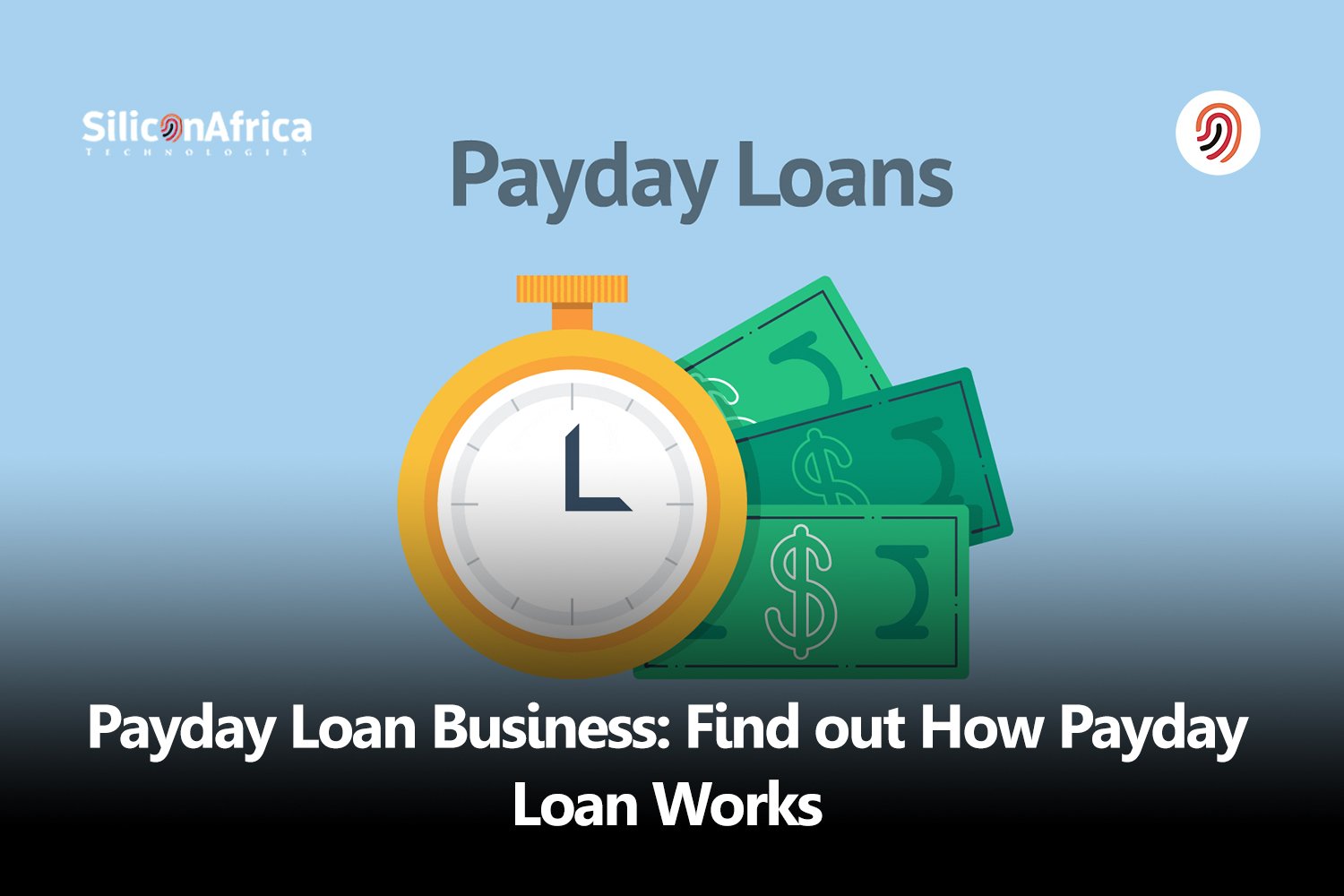Newsletter Subscribe
Enter your email address below and subscribe to our newsletter

Every year, millions of people find themselves in a financial pinch, juggling bills or struggling to make ends meet between paychecks. In these moments, payday loans promise quick cash. But at what cost?

As the debate over their ethics and legality rages on, it’s crucial to understand both sides of the coin. Behind the immediate cash relief lies hidden fees, high-interest rates, and debt traps.
Is it a risk you’d be willing to take for urgent cash? Read on to find out more.
Payday loans are short-term loans that you can obtain quickly in times of financial emergency. They are intended to hold you over until your next pay period.
However, they have high-interest rates, which could result in you having to repay more than you originally borrowed.
They operate as follows: Let us say you have to borrow $200 before your next pay period. You get $200 when you apply online or visit one of their outlets. You will have to reimburse them for the $200 plus a possible hefty fee when you receive your paycheck.
You do not have to put up any valuable items, like your house or car, as collateral for payday loans. Their primary focus is on you having a job and bank account status.
However, some people find themselves in a loop of borrowing and find it difficult to repay because the interest rates are so high and the fees can mount up.
Because of this, specialists frequently advise against taking out payday loans except you have exhausted all other avenues. Consider safer lending options instead, such as personal loans from credit unions or banks.
Payday loan companies might help if you are short on funds and need money right away. This is the typical flow of the process:
Initially, you show proof of your earnings, typically in the form of current paycheck stubs. The lender uses this information to determine how much they are willing to lend you.
If you apply in person at a store, you will get the money immediately in your bank account the same day.
You consent to pay back the loan plus a fee when you receive your subsequent paycheck, which may be a few weeks or a month from the time you get the funds.
You provide the lender with a postdated check to guarantee the loan, or you permit them to take money out of your bank account on the due date.
The lender will cash the check or take money electronically out of your account if you are unable to repay the loan on time.
Payday loans have high costs and risks, even though they provide a rapid fix for financial difficulties. They may trap you in an endless debt cycle if not handled wisely.
| Pros | Cons |
| Quick Cash Access: Payday loans can sometimes be issued quickly, sometimes on the same day. In an emergency, this may come in handy. | High-Interest Rates: Payday loans are a more costly and hazardous type of borrowing since they frequently have extremely high interest rates. |
| Simple to Qualify: Since credit checks are frequently waived, even those with bad or no credit can apply for these loans. | Short Repayment Period: If a borrower is still having financial troubles, repaying a payday loan by the following payday can be challenging. |
| Few Requirements: In most cases, the only things needed are a bank account, proof of address, and evidence of income. | Risk of Debt Cycle: If a borrower is unable to repay a payday loan on schedule, they could have to take out another one to pay off the first, which could result in a debt cycle. |
| Lender Selection: Payday lenders are many, providing borrowers with a variety of options. | Possibility of Scams and Exploitation: Some payday lenders might not adhere to ethical standards or might even be obvious frauds. |
| Potential Emergency Solution: Payday loans can be helpful in an emergency if they are used sensibly and repaid on schedule. | Negative Effect on Credit: A borrower’s credit score may suffer if they are unable to repay the loan and it is turned over to a collection agency. |
Applying for a payday loan is uncomplicated, regardless of whether you want to apply locally or online. What you will require and the overall flow of the process are as follows:
Payday loan applications are available online from several lenders or in person from local lenders, who are usually smaller lenders with physical locations.
There are some documents you will need to apply for a payday loan. These typically consist of a current pay stub or government-issued ID to confirm your identification, a bank account, and evidence of income.
Usually, your income determines how much you are eligible to borrow. The lender will evaluate your income and decide how much they will lend you in total.
In certain situations, your pay can serve as security. This implies that the lender will withhold a percentage of your money to repay the debt.
This, however, varies depending on the lender and might not always be necessary.
Payday lenders, in contrast to established lenders, typically do not run a credit check. Normally, during the application procedure, the lender does not take into account your ability to repay the loan.
The cost of payday loans can add up quickly due to their high fees and interest rates. Here’s a breakdown of what you can expect:
Initial Fees: For every $100 borrowed, payday loans usually charge between $10 and $30, as reported by the Consumer Financial Protection Bureau. For instance, your total repayment would be $120 for $100.
Extension Fees: The lender may charge an additional fee to prolong the due date if you are unable to return the loan in full by the deadline. This may result in an even larger debt.
You run the risk of paying back more in interest than the initial loan amount if you find yourself unable to repay the loan on time and decide to extend it or take out additional loans to pay off the old ones.
Payday loans carry this risk because it is easy to fall into a debt cycle that is harder and harder to break free from.
Payday loan interest rates can be shockingly high, sometimes reaching up to 780% in annual percentage rate (APR), with an average of around 400%.
While many states have laws limiting interest rates to a maximum of 5% to 30%, payday lenders often operate under exemptions that allow for these high rates.
Because payday loans are subject to various state lending loopholes, borrowers need to be cautious. Regulations surrounding payday loans vary by state, with 16 states and the District of Columbia outright banning them.
There are still restrictions in states that permit payday loans. For instance, in California, payday lenders can only lend up to $300 at a time and impose fees that cannot exceed $45, or 15% of the loan amount.
15% might not sound like much, but for a 14-day loan, it becomes an annual percentage rate of 460%.
Even while payday lenders are required by federal rules to reveal the financing charges they charge, many borrowers choose to ignore the hefty fees.
The majority of these loans have brief terms—30 days or less—and have the option to be rolled over for additional fees. Up to 80% of borrowers become repeat clients as a result of this.
Calculating the interest rate for payday loans might seem complicated, but it’s quite simple. Here’s how it works:
Let us say you get a $375 payday loan from a lender. You then divide the interest amount by the loan amount to determine the amount of interest you will pay.
Next, multiply that figure by 365, which is the total number of days in a year. The result is then divided by the repayment term’s duration, which is often expressed in days. Ultimately, you obtain the percentage by multiplying that by 100.
If you pay $56.25 in interest on a $375 loan, the calculation looks like this:
56.25 ÷ 375 = .15 (the decimal form)
.15 x 365 = 54.75
54.75 ÷ 14 (assuming a 14-day repayment term) = 3.91
3.91 x 100 = 391%
So, the APR for this loan would be 391%.
Now, let’s say the lender charges $20 for every $100 borrowed (or 20%) on the $375 loan. Here’s the calculation:
75 ÷ 375 = .2
.2 x 365 = 73
73 ÷ 14 = 5.21
5.21 x 100 = 521%
So, in this case, the APR would be 521%.
As you can see, payday loan APRs are incredibly high compared to other types of loans. Even if you use a credit card with the highest interest rate, you’d still pay much less in interest compared to a payday loan.
In conclusion, even while payday loans seem like a good way to cover unexpected expenses, it is important to be aware of their high fees and tendency to trap consumers in debt cycles.
Consider looking at other options that provide better long-term solutions These options include borrowing from creditors, applying for financial counseling services, or taking out personal loans from traditional banks or credit unions.
The United States does not prohibited payday loans. They are permitted in 27 states, while nine other states permit limited short-term storefront lending.
14 states as well as the District of Columbia prohibit payday lending. Certain states have acted forcefully against lenders they feel are violating their legal obligations.
Payday loan forgiveness is extremely uncommon since lenders earn handsomely from exorbitant interest rates. Payday loans that you are unable to repay could be turned over to a collection agency, which would hurt your credit and add to your total debt.
True, some lenders don’t need a bank account, but their interest rates are usually very expensive. Even while lenders prefer bank accounts, prepaid card accounts can work just as well.
Recommendations
Detailed List of Loan Apps Approved by CBN